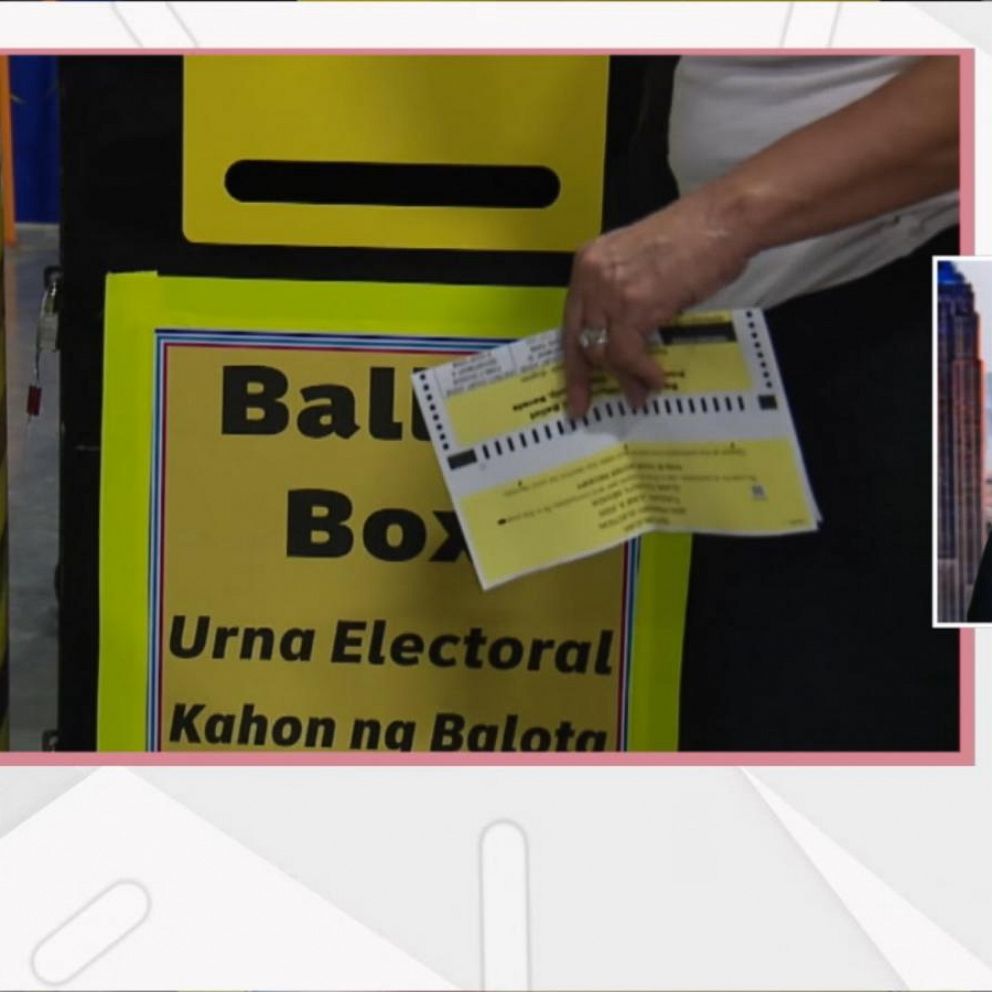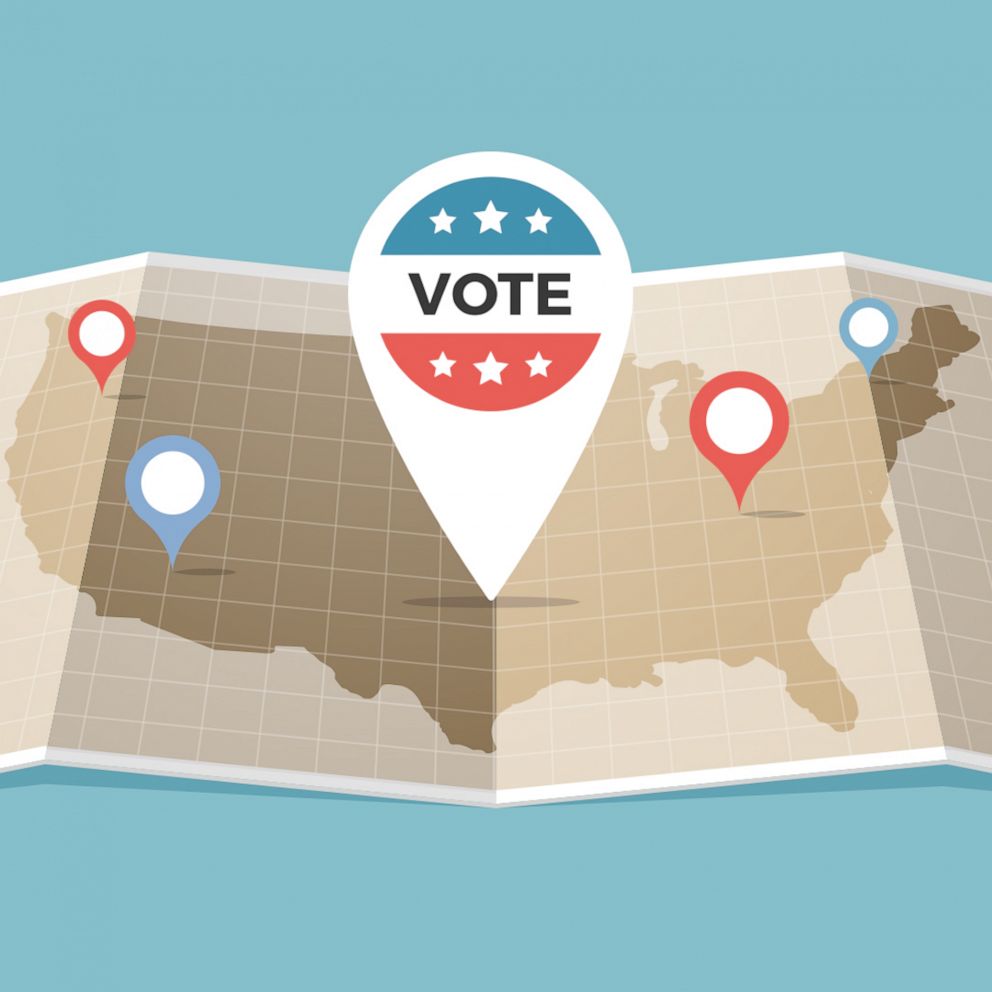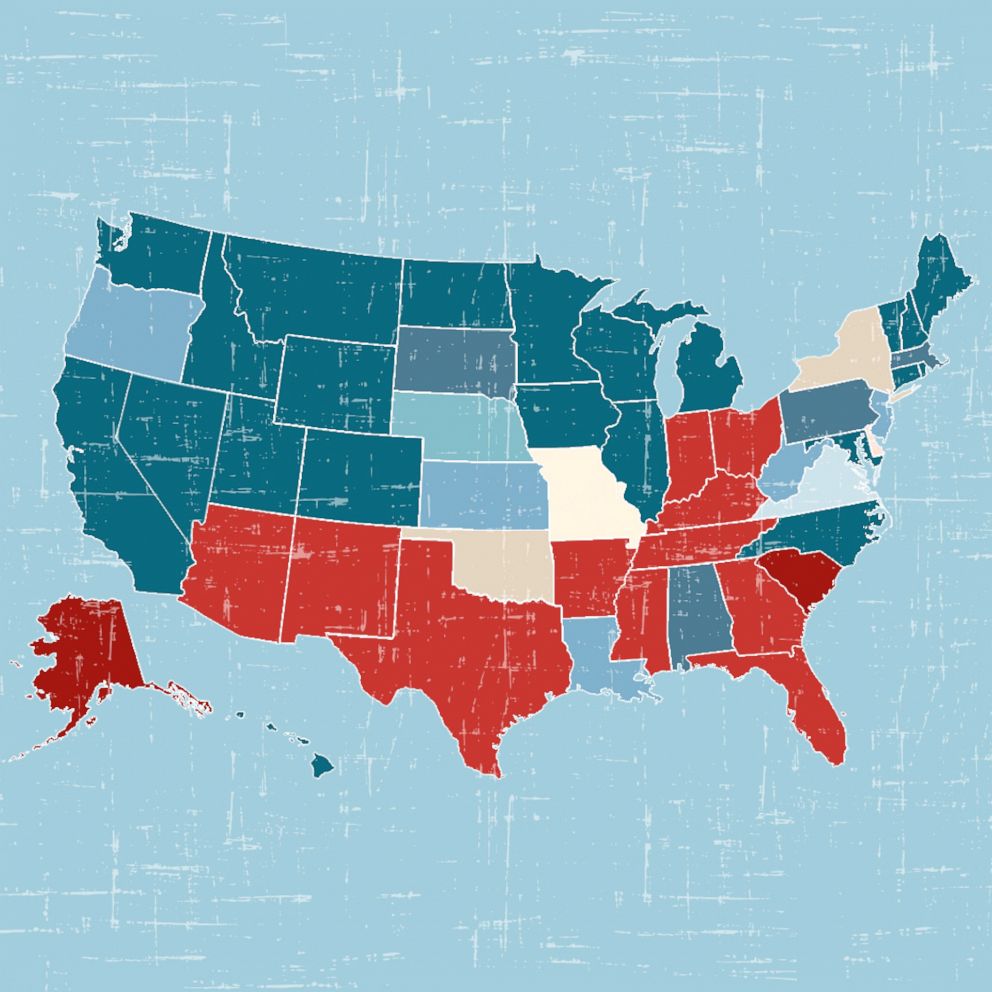Here's what you need to know to vote this election as a 1st-time voter
Here are nine solutions to potential problems with voting in this election.
The winner of this year's presidential election will not only depend on who votes but also who doesn't. Nearly 75 million registered voters didn't cast a ballot in the 2016 election, according to data from the Election Assistance Commission.
Now, 1 in 10 eligible voters are projected to come from members of Generation Z, according to Pew Research Center, and for many of those 18- to 23-year-olds it will be their first election.
This influx of first-time voters has the potential to shape the outcome of the race -- if they come out to vote.
"Every vote matters, every person's voice counts within their generation," said John Fortier, director of governmental studies at Bipartisan Policy Center. "As a younger age group, it's in your control, and there are things you can take initiative on and be a part of."
But state lawmakers are fighting over voting rules amid a global health crisis that will determine whether millions of Americans can vote this November.
"We've filed 15 cases since the pandemic began to try and make access easier and safer for voters," said Dale Ho, the ACLU's director for voter rights. "Right now, I worry about the states that have not yet committed to permitting everyone to vote by mail."
Those six states that have yet to make a decision include some rich in electoral delegates like Texas, all while President Donald Trump ramps up attacks on mail-in voting -- claims shot down by constitutional scholars across the political spectrum.
"Some voters are going to vote absentee through the proper process as they always do – and you will see us encouraging them to do that – but many of our voters just prefer to vote in person," RNC National Press Secretary Mandi Merritt said.
"Mail ballot fraud is incredibly rare and legitimate security concerns can be easily addressed," according to the Brennan Center for Justice at New York University School of Law, a non-partisan law and policy think tank.
ABC News checked in July with nearly 30 U.S. secretaries of state and none expressed doubts in their ability to protect the integrity of their state elections through expanded mail-in voting this November.
Still, the battle over mail-in ballots represents just the tip of an iceberg full of obstacles Americans most overcome this election cycle. It may simply come down to what your address is.
"In states that demand you show up in person, I think you will see some diminution of turnout," said Bob Shrum, director of USC Dornsife Center for the Political Future and a former Biden political consultant. "But the greater difficulty in voter suppression is requiring excessive amounts of ID for people who want to vote, which can be selectively enforced."
Ho explained preparedness is key to prevent that, and the first step is coming up with a voting game plan.
"It's important to plan for voting this year because it is confusing," Ho said. "Don't wait till the last second to figure this process out."
For those first time voters who want to ensure their voice is heard this November, here are nine solutions to problems that may come up along the way.
I need to register to vote
First things first. Visit Vote.gov to register to vote. Depending on your state's voter registration rules, the site can help you:
- Register online. This is available for 40 states plus the District of Columbia, according to the National Conference of State Legislatures (NCSL).
- Download the National Mail Voter Registration Form. You can fill it out onscreen and print the completed form, or print the blank form and fill it out by hand. Remember to sign the form before mailing it to the location listed for your state.
- Visit the website for your secretary of state, or other top election official, for more information about registering to vote where you live.
- A state-by-state breakdown of voter registration deadlines can be found here.
I need to find my polling location
Every state offers options to vote in person on Election Day, even those that primarily conduct elections by mail in light of the novel coronavirus pandemic.
Find your polling place or vote center and its hours of operation and make a plan for Election Day; when and where will you cast your vote, and how will you get there?
Even if you get your polling location mixed up, voters are entitled to a provisional ballot under the Help America Vote Act. Election officials will investigate after Election Day whether you were qualified to vote and registered. In some states, voters must follow up with local election officials after casting a provisional ballot in order for it to be counted. If it’s determined you were eligible to vote and did not also cast your ballot another way your provisional ballot will be counted.
If the polls close while you're still in line, stay in line -- you have the right to vote.
What time does my polling place open?
Call or visit the website for your state’s official election administrator’s office to find out what times polls and vote centers are open on Election Day. This information is usually available from the secretary of state.
What types of ID do I need?
Check out what is acceptable in your state.
Thirty-five states have laws requesting or requiring voters to show some form of identification at the polls, according to the NCSL. The remaining 14 states use other methods to verify the identity of voters, like signatures or cross referencing voter data on file.
Can I post a selfie with my ballot?
Yes, but it might be best not to plaster across social media. The practice was ruled constitutional in federal court on First Amendment grounds, but several state governments have cited "secrecy in voting" concerns since the ruling. According to a joint study from several non-partisan public interest research centers, 44 states have constitutional provisions that guarantee confidential voting, and the other remaining states have statutory provisions to do so. Posting a shot with your filled-out ballot obviously gets in the way of that, albeit voluntarily.
I have difficulty reading and/or writing in English
Under federal law, you can bring a family member, friend or person of your choice to assist you at the polls.
Some counties provide bilingual assistance to voters in specific languages, but not all. Check whether your county is required to provide bilingual election assistance in a language you speak.
Can I take my absentee ballot to a polling place?
The NCSL found eleven states and Washington, D.C., allow ballots to be dropped off at any in-person voting location in the county you’re registered to vote in: Arizona, California, Colorado, District of Columbia, Hawaii, Kansas, Montana, New Mexico, North Carolina, Oregon, Utah and Washington. New Hampshire and Vermont will also accept absentee ballots at the polling place, but it must be in your assigned precinct polling location.
I have a disability that could prevent me from voting
The Americans with Disabilities Act demands all polling places be fully accessible to older adults and voters with accessibility requirements. This can range from in-person help to machines that read out ballots in a private setting. The key is to tell election officials what you need upon arrival.
The Election Protection hotline at 1-866-OUR-VOTE has trained attorneys standing by on election day that can assist you if an accessibility problem comes up.
I'm worried about voter intimidation
It is a federal crime to intimidate voters from casting a ballot, which includes combative questions regarding citizenship, criminal record, or spreading false information about voter requirements.
If you witness or suspect voter intimidation or suppression, report it to your local election officials.
Visit iamavoter.com to check your voter registration status and to receive important election information.







